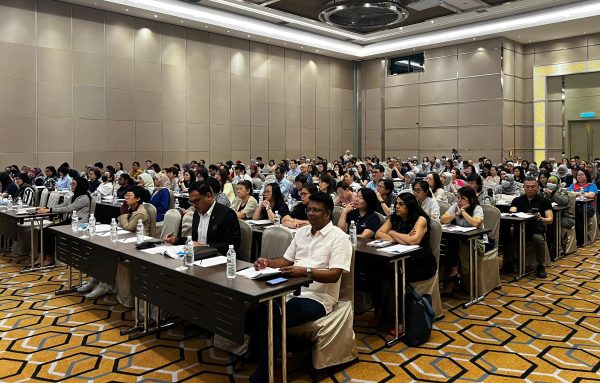KUALA LUMPUR, 23 December 2024: The Malaysian Association of Tour and Travel Agents (MATTA), through the MATTA Academy, has taken a step towards transitioning to a digital economy by organising a series of e-Invoicing seminars.
The seminars aim to equip MATTA members and embrace digital transformation in accordance with the E-Invoicing Regulations and Requirements set by the Ministry of Finance through the Lembaga Hasil Dalam Negeri (LHDN).

Gazetted on 30 September 2024, the amendments to the Income Tax Act 1967[Act 53] has mandated all registered companies in Malaysia to adopt and implement the e-Invoicing system. This regulation seeks to boost Malaysia’s digital economy while enhancing the efficiency of business operations and tax administration, allowing all businesses to save time and costs through these automated processes.
“As announced by the Government during the Budget 2023 and 2024, the e-Invoicing will be implemented in phases to enhance digital services infrastructure and digitalisation of tax administration in line with Rancangan Malaysia ke-12,” said Dr Rasyidah Che Rosli, Director of e-Invoice Division, Tax Operation Department, Lembaga Hasil Dalam Negeri Malaysia (LHDNM).
The phases of implementation of e-Invoicing based on taxpayers’ annual turnover is as follows:

To support this transition, MATTA curated a series of seminars — “Navigating e-Invoicing Implementation for the Travel and Hospitality Industry,” from 16 to 21 December 2024, initiated across four regions in Malaysia. These seminars are designed to address the many complexities tourism stakeholders face, particularly tour and travel agents.
The first seminar in Penang convened on 16 December 2024 with 39 member companies. The seminar was followed by a session held on 17 December 2024 in Kuala Lumpur, with more than 230 member companies. Some participants shared their feedback on the session, emphasising the relevance and practicality of the seminar content:
Participant Feedback
“This seminar opened my eyes to the importance of compliance and how e-Invoicing can make documentation so much simpler. I found the part about managing imported services and taxes helpful — it’s going to make a big difference in how we handle our finances. I feel more prepared now, but some hands-on training would help us implement it more confidently.”
“The Q&A session was a real highlight because it covered practical, real-life scenarios directly related to our business. I can see how e-Invoicing will streamline our processes — saving us time and cutting down on a lot of paperwork. The seminar was well-paced and easy to follow, and the examples made everything feel very relatable.”
The seminar followed in Kuching, Sarawak and Kota Kinabalu in Sabah. MATTA plans to expand the seminar to other states in 2025.
MATTA president Nigel Wong said: “MATTA’s goal is to support a seamless transition into the digital economy. The strong turnout at the seminars reflects the industry’s commitment to this transformation. With over 300 member companies throughout the series of seminars, we have opened the participation to other sectors in the tourism industry to equip them to adapt to this change.”
Rasyidah added: “We believe this e-Invoice implementation will benefit taxpayers greatly. MATTA has provided a practical roadmap to navigate the e-Invoice system.”
To complement these efforts, MATTA is publishing a handbook entitled “Navigating e-Invoicing Implementation for the Travel & Hospitality Industry,” authored by Datuk Tan Kok Liang and Dr Tan Thai Soon. The handbook leverages the authors’ extensive experience and expertise in E-Invoicing and tax administration and will be an invaluable resource for those in the tourism industry who are transitioning to digital invoicing.
Scheduled for publication in January 2025, this handbook will provide comprehensive insight into the technical processes of E-Invoicing. This includes managing cross-border transactions and handling imported services. The handbook offers a practical guide to ensuring adherence to SST legislation, detailed information on issuing self-billed e-Invoices, and simplified implementation methods.
Wong added: “This seminar builds on our previous efforts, such as the GST Navigator guide introduced in 2015. For the E-Invoicing transition, we produced a dedicated handbook to ensure that, beyond the series of seminars, members have something that they can use to guide them along this shift in their business and financial operations.
MATTA will continue engaging with LHDN to address pressing issues tour and travel agents face when adopting e-Invoicing. Rest assured that if there are any new updates, they will be included in the handbook.”
MATTA’s initiatives aim to build a future where Malaysian Travel and Hospitality businesses can continue to develop and grow bigger in a competitive and digitally driven global market. This initiative is about compliance and building an energetic and sustainable future for the tourism industry in the national and international economy.






